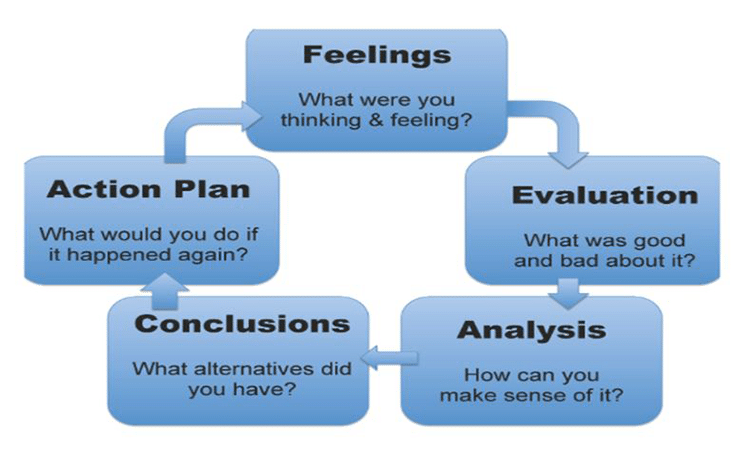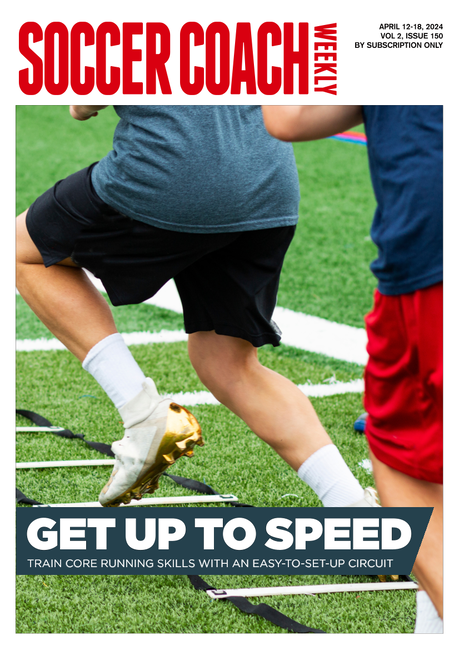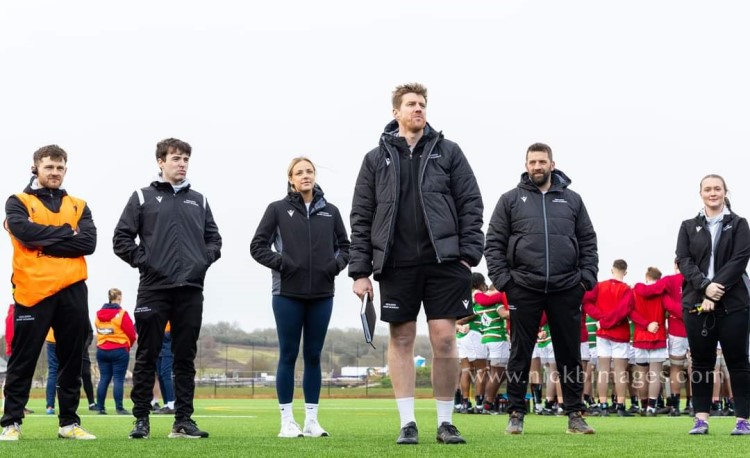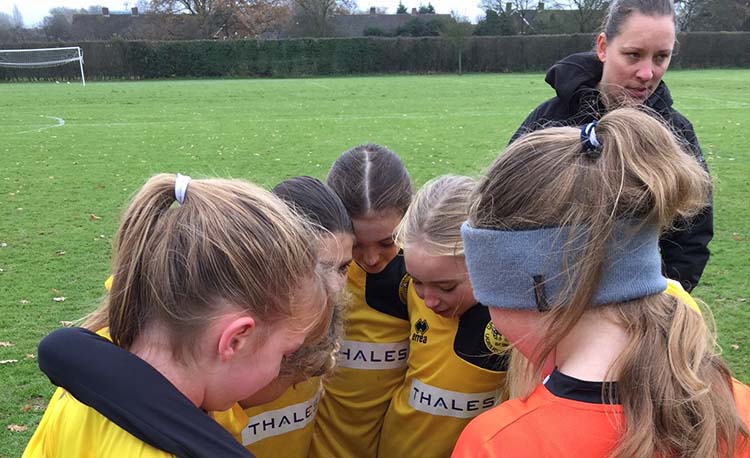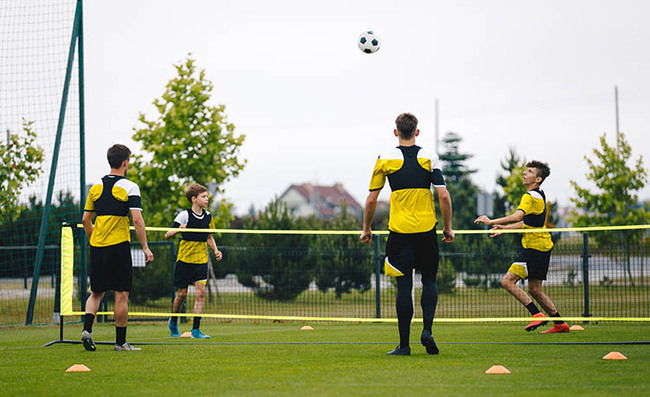Key to improvement? Just talk to yourself...
Coaching Adviceby Ian Barker
We all need to evaluate our own performance. United Soccer Coaches' director of coaching education IAN BARKER explains ways of reflecting on your sessions
Intrapersonal communication is the skill of having a dialogue with yourself.
The effective coach is one who can reflect upon their performance, evaluate the strength and weakness and plan for improvement.
The skill of intrapersonal communication is one that may be developed and one that requires the coach to have time and space to reflect. A common opportunity for simple reflection could be the drive home from training.
Here are seven considerations for grassroots coaches, with each slightly expanded upon for those operating at a higher-level...
Honestly asking the questions of yourself is a strong first step in reflective practice. A helpful protocol could be to give yourself a score out of five or ten for each of the seven considerations.
Over time, you will be able to determine when you perceive your performance to be the most effective.
Research suggests that coaching skill acquisition comes from three broad means. First formal coaching education, then clinics, seminars, mentoring and so on, and finally through on-the-job, self-directed reflection and informal sharing.
That research further suggests that overall coaching competency comes from each of these at 10 per cent, 20 per cent and 70 per cent respectively.
Therefore, while coaches should seek out formal education, to become expert requires intentional practice, then reflection and then an action plan for improvement. The best learning for the coach and the athlete will come from the training environment. This is because it is situated within context that coaching and playing is applied.
Left to our own devices, most coaches will understand they learn and improve through formal education. Beyond that, we may understand the value of the first four of the following bullet points, but it is the fifth that is often neglected:
The effective coach is one who can reflect upon their performance, evaluate the strength and weakness and plan for improvement.
The skill of intrapersonal communication is one that may be developed and one that requires the coach to have time and space to reflect. A common opportunity for simple reflection could be the drive home from training.
Here are seven considerations for grassroots coaches, with each slightly expanded upon for those operating at a higher-level...
GRASSROOTS
- Was the session fun?
- Was the session organized?
- Were the players involved?
- Was there opportunity for creativity?
- Was the use of space correct?
- How was feedback?
- Were there implications for the game?
MORE COMPETITIVE
- Was the session fun and was competence improved?
- Was the session well facilitated?
- Was the activity intentional?
- Was there decision making opportunity?
- Was there relevance and realism?
- How were coaching interventions?
- Did the session relate to the game model?
Honestly asking the questions of yourself is a strong first step in reflective practice. A helpful protocol could be to give yourself a score out of five or ten for each of the seven considerations.
Over time, you will be able to determine when you perceive your performance to be the most effective.
Research suggests that coaching skill acquisition comes from three broad means. First formal coaching education, then clinics, seminars, mentoring and so on, and finally through on-the-job, self-directed reflection and informal sharing.
That research further suggests that overall coaching competency comes from each of these at 10 per cent, 20 per cent and 70 per cent respectively.
Therefore, while coaches should seek out formal education, to become expert requires intentional practice, then reflection and then an action plan for improvement. The best learning for the coach and the athlete will come from the training environment. This is because it is situated within context that coaching and playing is applied.
“Asking questions of yourself is a strong first step in reflective practice..."
Left to our own devices, most coaches will understand they learn and improve through formal education. Beyond that, we may understand the value of the first four of the following bullet points, but it is the fifth that is often neglected:
- Observation
- Conversation
- Practice
- Experience
- Reflection in or on practice (distinction of “in” or “on” refers to the ability to reflect and respond in the moment and the more deliberate ability to reflect after training)
There are various models offered for coaches to practice their craft. Graham Gibbs (Edinburgh University, 1998) suggests an approach to reflection, with the catalyst for the cycle being the “event” (see graphic above).
A good coach at any level will be driven by developing expertise in content, the “what” to coach. That will be technique, tactics, physical conditioning, and mental skills.
The “effective”, developing expert coach, will also be driven by developing their methodology. That is how they deliver content, how they receive player feedback and how they reflect and improve.
Consider the Albert Einstein quote, “Insanity is doing the same thing over and over again and expecting different results”. It challenges us all to continually improve. We will agree our players deserve that from us.
Related Files
Vol 2 Issue 007 - I-Barker - Key to improvement - Just talk to yourself.pdfPDF, 172 KB
Newsletter Sign Up
Coaches Testimonials

Gerald Kearney, Downtown Las Vegas Soccer Club

Paul Butler, Florida, USA

Rick Shields, Springboro, USA

Tony Green, Pierrefonds Titans, Quebec, Canada
Subscribe Today
Discover the simple way to become a more effective, more successful soccer coach
In a recent survey 89% of subscribers said Soccer Coach Weekly makes them more confident, 91% said Soccer Coach Weekly makes them a more effective coach and 93% said Soccer Coach Weekly makes them more inspired.
*includes 3 coaching manuals
Get Weekly Inspiration
All the latest techniques and approaches
Soccer Coach Weekly offers proven and easy to use soccer drills, coaching sessions, practice plans, small-sided games, warm-ups, training tips and advice.
We've been at the cutting edge of soccer coaching since we launched in 2007, creating resources for the grassroots youth coach, following best practice from around the world and insights from the professional game.
